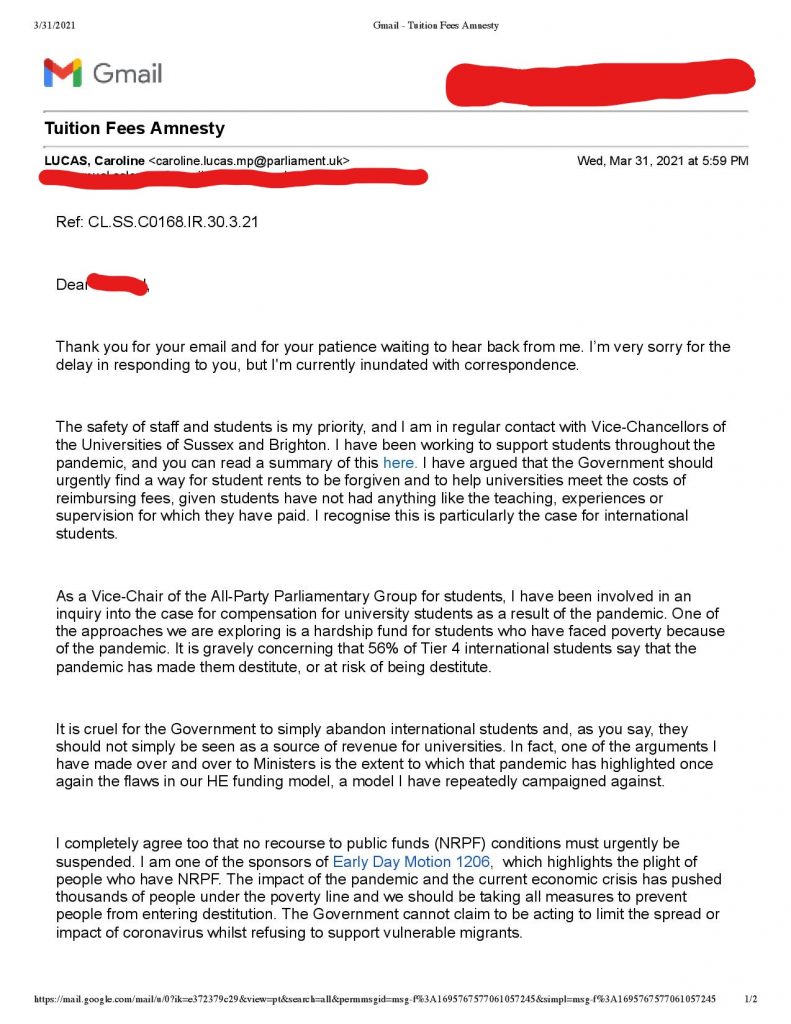
After years on the frontline, Unis Resist Border Control (URBC) have extensive familiarity with the exploitative situations migrant students in the UK find themselves in. As such, we are extremely concerned about The Observer article “Human traffickers ‘using UK universities as cover’” published on 3 July 2022 by Shanti Das, and the conclusions that are drawn upon.
Continue reading “Statement from URBC on The Observer’s “Human traffickers ‘using UK universities as cover’””



